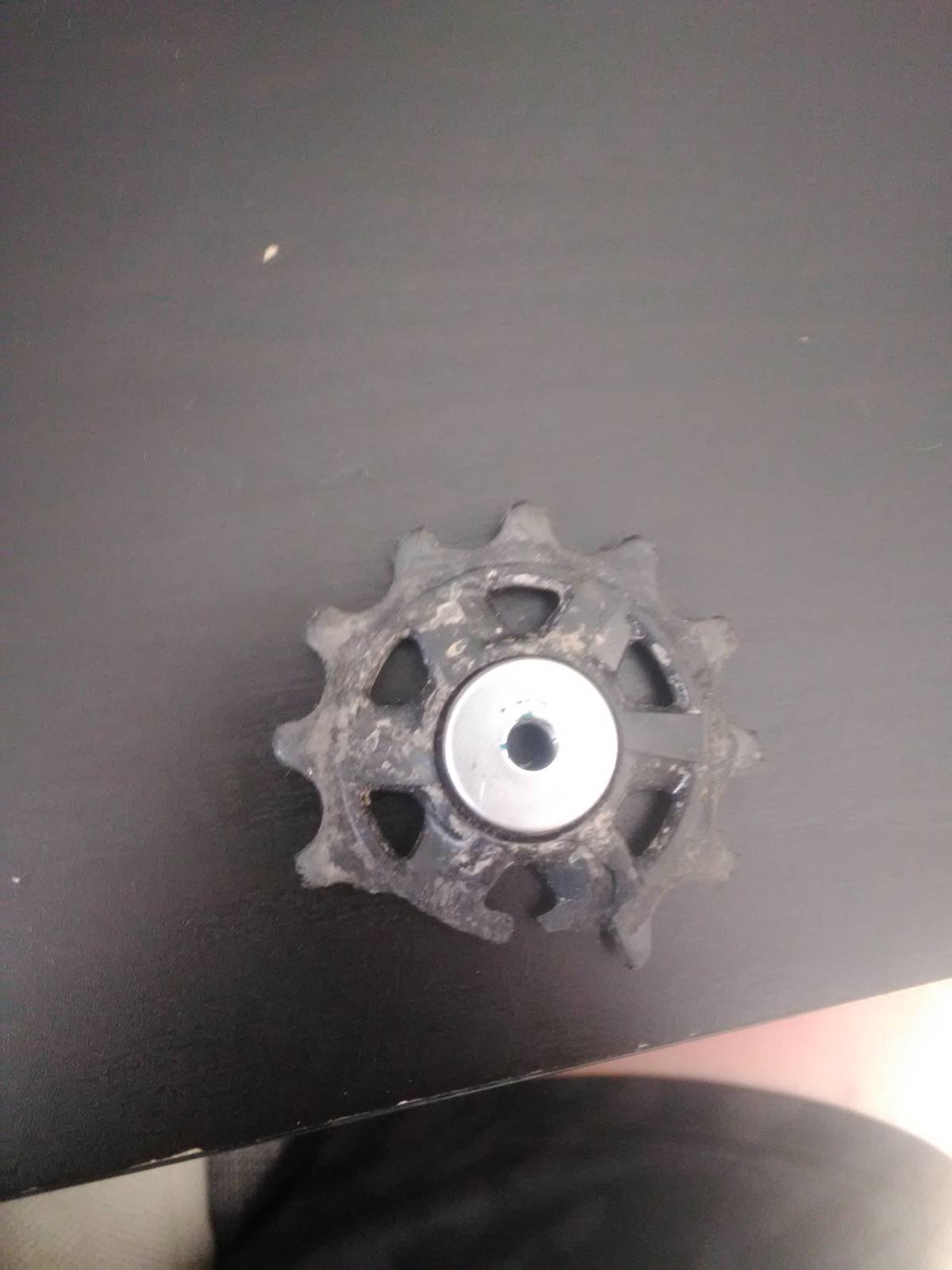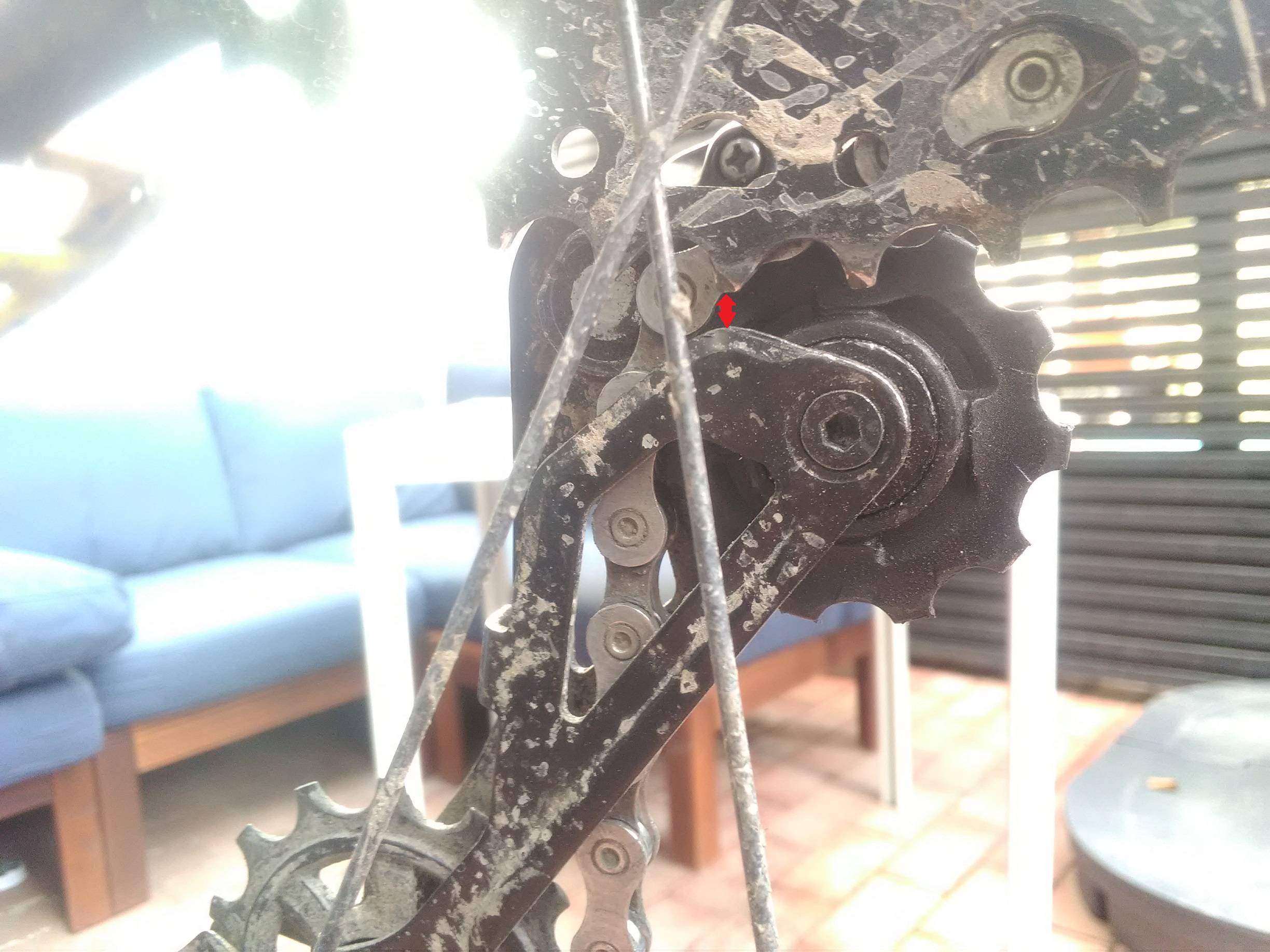I am now in position to answer my question, as I've obtained practical results of an experiment described in the question.
I managed to destroy an upper pulley wheel when it met a stub. The rest of the derailleur was undamaged.
The damaged guide pulley had 12 teeth (not 13 teeth as I originally miscounted). I only had 11-teeth replacements from SRAM in my reserves. So I went ahead and replaced it. I also shortened the chain by 2 half-links as I felt it was just a bit too long as well.
The main adjustment that I had to do to make it work was to ensure that the cage would not touch the cassette when climbing from the next-to-biggest cog to the largest cog. The B-tension screw of the derailleur was turned until there was a gap between these parts. A smaller diameter of the replacement part brought the cage closer to the cassette, so that had to be accounted for:
During the next two weeks, the repaired derailleur worked without noticeable differences compared to how it shifted before.
I have just received and installed a replacement 12-teeth upper pulley wheel from the manufacturer (the part is not available aftermarket yet). Again, I have not noticed any difference in shifting.



